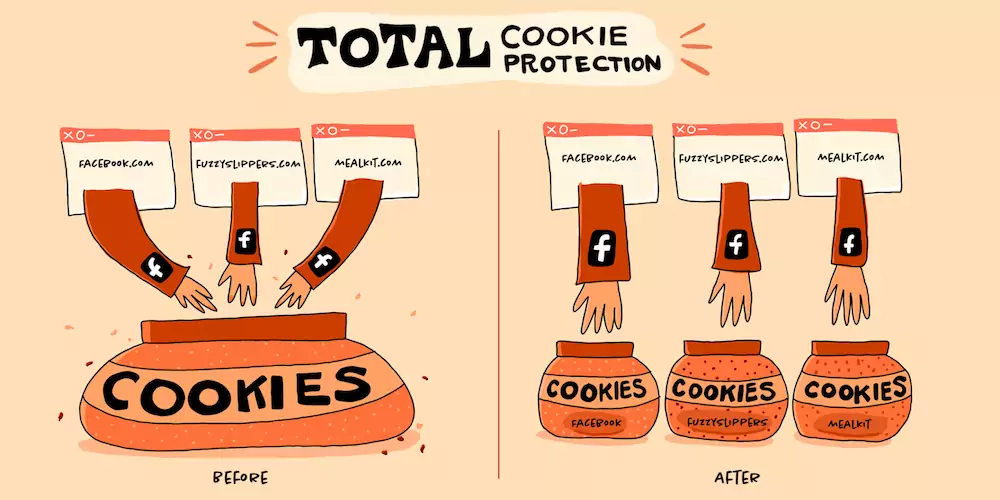Mozilla just added new anti-tracking features to its Firefox browser.
On Tuesday, Mozilla announced a new cookie-restricting feature for Firefox, the browser already known for its privacy protections.
As part of the design change titled “Total Cookie Protection,” websites created by third parties will be restricted from reading cookies created by other websites, which will improve their online tracking protection.
In its blog post, Mozilla describes the new feature as a different “cookie jar” for each website, which prevents trackers from tying user behavior across sites, making Firefox the most private and secure major browser available across Windows, Mac and Linux.
What is Total Cookie Protection?
Total Cookie Protection offers strong protections against tracking without affecting your browsing experience.

Total Cookie Protection works by creating a separate “cookie jar” for each website you visit. Instead of allowing trackers to link up your behavior on multiple sites, they just get to see behavior on individual sites. Any time a website, or third-party content embedded in a website, deposits a cookie in your browser, that cookie is confined to the cookie jar assigned to only that website. No other websites can reach into the cookie jars that don’t belong to them and find out what the other websites’ cookies know about you — giving you freedom from invasive ads and reducing the amount of information companies gather about you.
The release of Total Cookie Protection is the result of experimentation and feature testing, first in ETP Strict Mode and Private Browsing windows, then in Firefox Focus earlier this year. We’re now making it a default feature for all Firefox desktop users worldwide, said Mozilla.
“We have been working on Total Cookie Protection for years now to combat online tracking, a major cyber threat to online privacy. In 2015, we first implemented Tracking Protection, a setting that could be enabled by switching to Private Browsing mode. We recognized at that time that browser developers could not simply sit back and allow their users to be exploited, company added.”
“In 2018, we launched Enhanced Tracking Protection, and in 2019 we turned it on by default for Firefox users, showing we care about protecting our users, not just relying on them. In the years since, we’ve gotten better at blocking trackers and stopping cross-site tracking with fingerprinting and supercookie protection.”
Firefox continues to support ad-blocking features that Google Chrome doesn’t, as part of Mozilla’s ongoing privacy-oriented development strategy. Cookies: Google originally said it would phase out third-party cookies within two years, but later pushed the deadline back to 2023.











